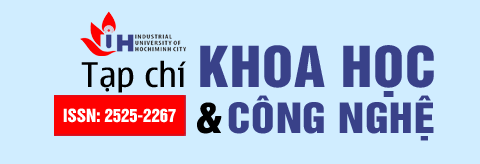THE EFFECTS OF VIRTUAL EXCHANGE ON NON-ENGLISH MAJORS’ SPEAKING SKILLS AT IUH
Main Article Content
Abstract
The potential of virtual exchange (VE) to improve oral communication skills of learners in non-English speaking countries has not been acknowledged in the literature. However, despite the expansion of VE programs for on-demand language practices in mainstream foreign language education and the growing number of research into VE worldwide, the potential of VE has not been recognized in Vietnam. This study explored the effects of VE on the speaking skills of non-English majors at a Vietnamese technical university. It used a survey with Likert-type options, interviews, and students' language samples to examine both the perceived and actual impact of VE. The findings show that all participants believed in the encouraging effects of VE on students' debate skills, idea exchanges, learning process, sense of improvement and achievement, confidence, interaction, and speaking motivation. Five elements of speaking skills, namely Grammar, Vocabulary, Pronunciation, Fluency, and Discourse Management, were improved, with Discourse Management showing the most progress and Grammar showing the least. Linguistic analysis indicates that student participants actually made progress in their oral communication skills. However, improvement varied depending on the topic, with participants showing more improvement in familiar or easy speaking activities compared to less common matters and complex situations. Based on the findings, recommendations are made for VE researchers, designers, teachers, and students.

